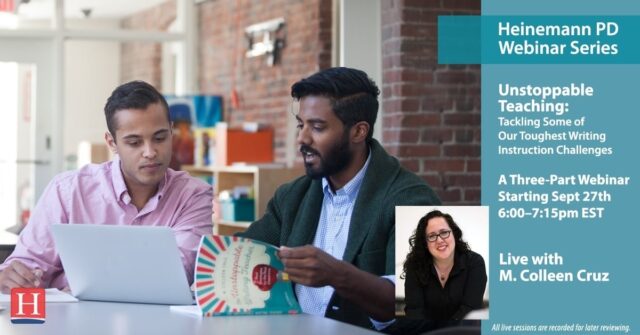In author Dan Feigelson's new book Reading Projects Reimagined, he shows us how conference-based reading projects help students learn to think for themselves. In today's post adapted from the book, Dan describes the common perception of "reading projects" and how conferring focuses student thinking.
In author Dan Feigelson's new book Reading Projects Reimagined, he shows us how conference-based reading projects help students learn to think for themselves. In today's post adapted from the book, Dan describes the common perception of "reading projects" and how conferring focuses student thinking.

The term “reading projects” conjures visions of dioramas, posters, and shoeboxes, and (often) work that looks suspiciously like it was done by parents. In the end, we get a product that may be beautiful to look at, but does little to make the child a better reader. Worse, all those hours spent choosing the right marker or the most attractive font takes time away from actual reading. If we accept Allington’s assertion that “Kids need to read a lot if they are to become good readers” (2006), it follows that any activity they spend time on in reading class—other than reading—had better be worth it.
So what is the difference between conference-based reading projects and those more traditionally assigned in reading classrooms? Probably the most common work assigned to children learning to read is answering questions from a teacher or a program. While skillful questioning is certainly important, true comprehension instruction involves students coming up with—and extending—their own ideas.
It’s not as if the importance of students tracking their individual thinking has gone unrecognized. In many classrooms, students jot their thoughts on sticky notes as they read and stick them on the relevant page. This has the dual advantage of providing the reader with a concrete way to record and connect his or her thoughts, as well as giving the teacher a window into what the child is or isn’t understanding (Tovani 2011). The problem is that in many classes students get carried away, to put it mildly. Some readers end up with more sticky notes than pages in the book they are reading. Consequently, their thinking becomes unfocused or lost entirely.
A conference-based reading project prioritizes students’ emerging thinking and helps them focus on a particular idea. It not only pushes them to go deeper, but also gives them work to do to practice following and extending a line of thinking.
Click here for a sample chapter of Dan Feigelson's new book.


